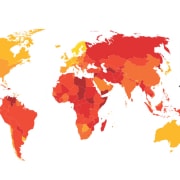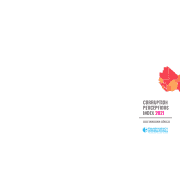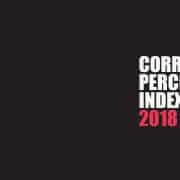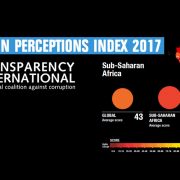|
Getting your Trinity Audio player ready...
|
There can be no doubt that South Africa is grappling with serious public and private sector corruption issues at present, issues that are undermining the population’s faith in government and corporates alike, and denting the economy as well as the country’s image. Several indexes are released each year that present the worldwide corruption situation in different ways and from various perspectives and contexts.
The Corruption Challenges Index for 2017, released by global consultancy firm Risk Advisory Group, presents a view of business-related corruption in South Africa that might come as a surprise and could even be construed as good news. It ranks 181 countries in terms of the markets that pose the most – and the fewest – corruption challenges for investing businesses, by looking at a number of measures, including:
- the local threat of corruption;
- how exposed foreign investors are to corruption itself as well as to Foreign Corrupt Practices Act enforcement action;
- the availability of reliable information to conduct integrity due diligence and mitigate the risk of dealing with corrupt parties.
Industry sectors are also ranked, with construction and development, infrastructure, oil and gas emerging as the most challenging from a corruption point of view.
The Corruption Challenges Index aims to be a tool to help businesses to understand the unique corruption challenges of countries they are planning to invest in this year.
Around 20 due diligence experts from Risk Advisory’s six regional business intelligence teams contributed to the survey. Their data resulted in the assignment of a ‘corruption challenge’ score, and a consequent ‘most challenging jurisdiction’ ranking to each of the 181 countries. The corruption challenge score is based on the sum of corruption risk and information opacity.
The most challenging countries were those assessed to have a high threat of corruption, high exposure to corruption because of foreign investment levels and high levels of opacity around public information and business intelligence.
For detailed information about how the scores were calculated, refer to the methodology.
Silver lining in the dark cloud?
South Africa has just experienced a double credit rating downgrade to junk status, which means that investing companies may not have as much confidence in the country as they used to, while the downgrades will also raise borrowing costs, with a corresponding negative impact on the South African government’s finances.
However, on the Corruption Challenges Index the country scored 18 for corruption challenge to investing businesses – this is considered “unchallenging” according to Risk Advisory. The score is reported in terms of a scale of straightforward, unchallenging, challenging, highly challenging and extremely challenging.
In addition, South Africa scored 15 for corruption risk, where the lowest risk was 1.42 and the highest was 67.5, and for opacity the country scored three, where the least opaque is two and the most opaque is 34.
So from the point of view of external potential investors, South Africa’s corruption problems are not as concerning as they would look to someone living in the country. This also paints a better picture than perception surveys.
Countries with similar results include Australia and Chile, as well as Zambia, Tanzania, Ghana and Côte d’Ivoire in Africa. The continent’s widely-perceived least corrupt country, Botswana, achieved a corruption challenge rating of straightforward, as did Namibia. South Africa’s Brics partners did not fare as well – Brazil was rated as challenging, while India and Russia were highly challenging and China was extremely challenging.
Perception vs expert opinion
A possible reason for the disparity between perception and expert opinion, says author Ivo Vegter, is the fact that there are no official statistics on corruption. Even the South African Police Service cannot provide detailed statistics on corruption, which is reported on under the broader category of commercial crimes.
“That means that all we have to go on is the assessment of experts with skin in the game like the Risk Advisory Group, the anecdotal evidence that news reports provide, and the perceptions of the general public as reflected in surveys like those conducted by Transparency International,” Vegter writes, adding that there are reasons to believe that the experts might have a better handle on the extent of corruption than the general public.
Vegter cites the World Economic Forum’s Global Competitiveness Report 2015-2016 as supporting the view that corruption – in terms of doing business – is less of a problem than widely thought. “Among the most problematic factors for doing business in South Africa, respondents ranked corruption behind restrictive labour regulations, inefficient government bureaucracy, inadequate supply of infrastructure, policy instability, inadequately educated workforce, and crime.”
He also mentions the Institute for Economics and Peace which, in its Positive Peace 2016 report, gives South Africa a moderate score on corruption, ranking it 56 out of 162 surveyed countries. It scored South Africa 3.192 on corruption, where the global average was 3.35.








